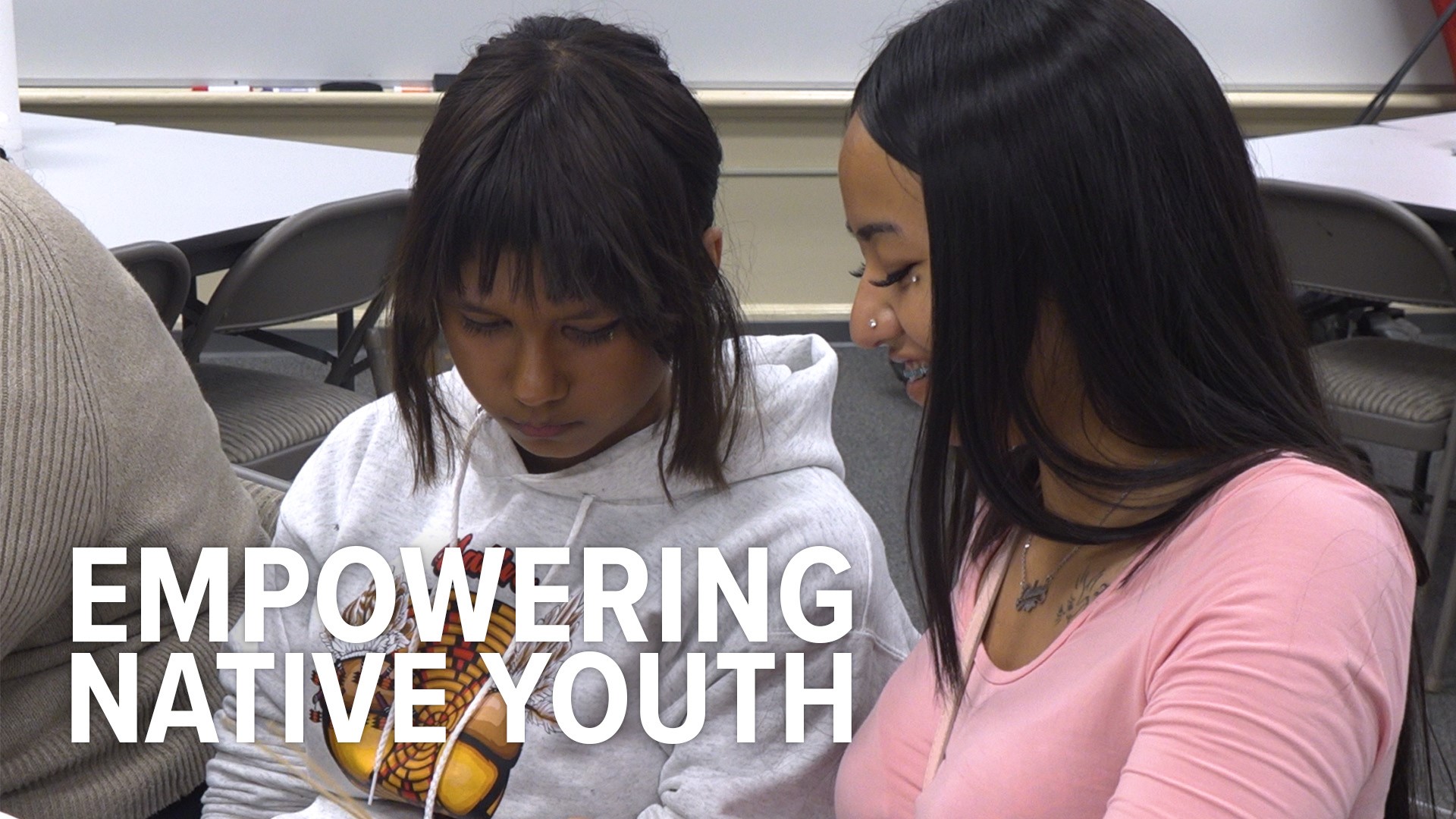SACRAMENTO COUNTY, Calif. — Across the greater Sacramento area, organizations are working to keep Native culture and traditions alive, while strengthening Native identity.
Native Sisters Circle is an organization focused on empowering Native girls and young women through cultural activities and support groups. The organization places an emphasis on embracing identity, building sisterhood and fostering the next generation of community leaders.
Angelina Hinojosa has been with Native Sisters Circle since the organization's start in 2018. Today, she's a mentor for other youth.
"I once was a young girl who kind of lost her way, and I feel like we all get at that age where we are in that place," said Hinojosa. "And when I see other girls going through that, I want to help in any possible way that I can, whether it's being a friend but also leadership building, especially within our community."
Hinojosa says she draws a lot from her personal experiences, but she also looks up to her mom, Leticia Aguilar, who founded the organization.
"As a parent of a teenage daughter, I went through the struggle of wanting a safe space for her, but also something... where she can practice her culture and thrive in a group setting," said Aguilar.
She then realized there wasn't a space specifically for young Native girls that was culturally empowering and foundational to identity, so she got to work.
Aguilar says it started with reaching out to find a space. With community support, she secured a classroom space and the group convenes weekly.
Today, Native Sisters Circle is more than just a youth organization — it's a way of life, according to the organization's website. The foundation of the organization lies in talking circles, which are fundamental in Native communities.
"Everything we do represents equality, and circle teachings is one of the things that we practice," said Aguilar.
Talking circles are confidential for trust building and maintaining a safe space, but Hinojosa says a common discussion the group and wider Native communities often engage in is mental health.
"A lot of our elders come from a generation where you had to push away your feelings. But within these spaces, we like to talk more about, 'How are you feeling? What's going on in your life?'" said Hinojosa.
Charlie Blue, one of the youngest members of Native Sisters Circle, says she felt an instant connection to the other girls in the group when she joined in September.
"I feel like it kind of clicked because, first of all, we're all young. And second of all, we're all Native. So when you meet a group and they're all the same age, that's one thing, but they're not going to have that same issue about being Native American," said Blue.
She says the group also discusses other important topics like Native American history curriculum in schools.
"Even today, I'm learning about U.S. history, but apparently we're not learning about Native Americans. When you say U.S., everybody thinks of Christopher Columbus, John Sutter, all of them," said Blue. "They need to tell a lot more about what happened here."
Along with talking circles, members of the group also participate in cultural activities, like Native American clay pottery making and basketry.
"One thing we talk about is culture is prevention, so as simple as going back to your roots and making that basket and learning the importance of why we weave it this way and why it's built this way and why your good energy needs to be — that's therapy for people," said Hinojosa.
The organization may be small and "boots on the ground," but Aguilar says the youth are making differences on a larger scale well beyond the classroom. They have hosted conferences and opened workshops and programming to communities, all geared toward leadership spaces for youth. Members also advocate for issues they are passionate about like MMIW, or Missing and Murdered Indigenous Women movement.
Alexanderia Russell, who is an Elder in Sacramento Native communities, has been supportive of the organization since the beginning and says it's been inspiring to see the youth grow and become mentors.
"Once upon a time just seeing them as little girls and young teenagers and now to see them as leaders and to work with them side by side, it's the most beautiful thing," said Russell.
She emphasized children are not just seen as children within Native communities.
"We're all in the circle together. We all have a role and it's very important that our children see our youth, the youth see our leaders and the leaders see our elders," she said.
Hinojosa says she's proud to be an advocate for other Native youth.
"Being Native American, we have so many young-minded people that are brilliant. We're smart, resilient, a lot of us have a lot of like good gifts that could be to use... And I think it's rare that a lot of people see that in our youth," she said. "We came a long way and we're still thriving. I'm proud to advocate towards that."
We want to hear from you!
The Race and Culture team's mission is to serve our diverse communities through authentic representation, community engagement and equitable reporting.
Accomplishing our goals of inclusive reporting requires hearing from you. Is there a person or place that you want us to highlight? Email us at raceandculture@abc10.com or fill out the form below.
Watch our collection of Native American Heritage Month stories: Voices from our Native American community | ABC10+

